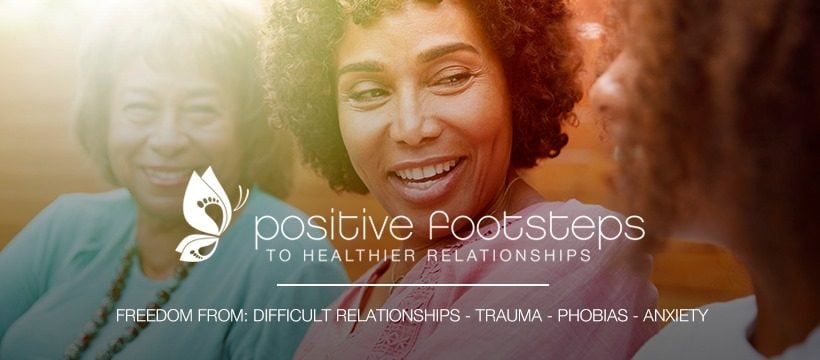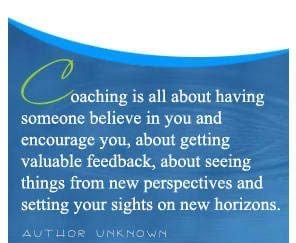Sep 12, 2020 in Life Coaching
Tired of giving too much?
Over-caring is overwhelming. It can result in an emotional and/or physical burnout akin to compassion fatigue. This article offers a suggestion of therapeutic recovery coaching as one of the many ways you might choose to right yourself, following capsiz
It's your turn now! Let's support each other by clicking "Helpful".
+1

DISCUSS #Relationship
DISCUSS #Parenting
It seems that, from an early age, many of us are encouraged to be caring, considerate and selfless. We’re taught that our biology pre-programs us for taking care of and nurturing others. But what about when nature and nurture conflict – when the way we’re brought up somehow interrupts healthy development and affects the way we attach to others emotionally? All sorts of problems can occur as a result… but when does taking care of others become codependency?
Add to myWE:
Having experienced the overwhelming gravitational pull of codependency myself – that need to be needed, to control events, that attraction to problematic relationships, in the hope of creating a happily ever after – after much soul-searching, I began to realise that the person who really needed help was me… The codependent’s lot is Groundhog Day – doing the same thing over and over again until we “get it right”. We attempt to finish unfinished business, to create a happily ever after. But it just doesn’t happen. No matter how hard we try, life becomes evermore chaotic – a series of challenges to be met. We begin to expect and accept chaos as a necessary and everyday part of life. For some, professional life can replicate this; for example, work becomes impossible to leave – social engagements are broken; every waking thought and sleepless night focuses on that “more important” something – or someone.
My training and background in understanding and accepting the different ways we live, attachment theory, and latterly coach training (with CTI), addiction recovery coach training (Crossroads Coaching USA) and Therapeutic Coaching, have enabled me to assist others in moving forward in their own lives; to learn about codependency and begin to understand how to free themselves from it. Unlike therapy, the main focus within sessions is on today and tomorrow – not yesterday. In recovery coaching, we’re mining for diamonds – not for coal. But accepting that yesterday forms a significant part of who we are today, affecting our thoughts and actions, is important to moving forward. We focus on a topic of the client’s choice each week – areas of their lives often neglected as a consequence of giving too much of their energy, time and self to something (a job) or someone (a partner, friend, family member). I assist individuals who are looking for space and time to explore what they really want from life – perhaps for the first time. Living their own life and meeting their own needs is a pretty radical and new idea for someone who experiences codependency.
Certainly, when our lives become unmanageable, having little or no self-control, there can be some comfort in handing over the reins of our lives to someone else. It doesn’t make for happiness but there can be comfort in discomfort – when being uncomfortable is a familiar feeling. When we’re asking someone else to take responsibility for our feelings – we’re feeling by proxy. The silent question of the codependent is: “Could you tell me how I’m going to feel today?” If their partner or friend feels down, they feel down; if they’re angry, they’ll feel upset – what did they say? Sometimes the pendulum can swing the other way. When a person gives so much of their time and energy to someone or something and the results they hope for just don’t materialise, she can become frustrated, angry and sometimes depressed. Attempting to control events – or people – can form part of this behaviour.
Often those who experience codependency have grown up with doubts about their self-worth, their own abilities and strengths, and look to others to fill this emotional void and sense of self. Filling this void is often transient – through a compliment or maybe even a qualification. It can empty again within seconds – a chance remark can bring the house of cards crashing down. So… what’s the answer? It lies within us – it can’t be found ‘out there somewhere’. As many who have trodden this path understand, external validation – looking to something or someone for reassurance about who we are and what we’re about – just isn’t enough. The answers must come from within ourselves and they’re often so deeply buried and entrenched in habit and self-loathing that we can’t see them. We have an idea there’s something that doesn’t feel right, that we’re not really relating or behaving in a healthy way but we’re just not sure what to do about it. Sometimes we have glimpses that we can be ‘something better’ – that anything’s possible… I help you to get in touch with that strong, confident and magical part inside each of us, which often lies buried under fear, indecision and anxiety. In a relatively short space of time, the feeling of ‘something better’ can become a reality – a new way of being. Clients often report positive shifts and changes after just a few sessions.
Counselling and therapy can and do help, of course – particularly if, as often happens, severe anxiety or depression have taken hold. This has certainly been my own experience. Codependency is often described as an addiction to a person – or maybe even a feeling – and can sit alongside other addictions and remain untreated. It is also pretty common for people who experience codependency to become involved with people who are also in an addictive cycle.
I took the decision to train in the Human Givens’ technique of clearing and releasing phobias, as well as trauma, because I had been looking for something which could offer more clarity and perhaps break through resistance to change more quickly. Having witnessed and experienced the technique first-hand, I have found this to be true.
The avoidance patterns, which seem to develop to allow us to cope with a particular addiction, might similarly help us deal with a particular fear. That’s not to say that everyone experiencing a phobia or trauma is addicted to a substance or person. The common ground they share is avoidance - which takes the form of the adjustments we make (big or small) to our everyday lives to counteract a negative or painful feeling. They hold us back and keep us stuck.
So.. if you’re interested in starting to put yourself top of your own list, please get in touch. Therapeutic Recovery Coaching can ease the arduous journey of moving forward and offers you the potential to create a calmer, more confident, authentic and relaxed way of life, free from chaos, confusion, indecision and a feeling of not being good enough.









 Thank you for your help!
Thank you for your help!